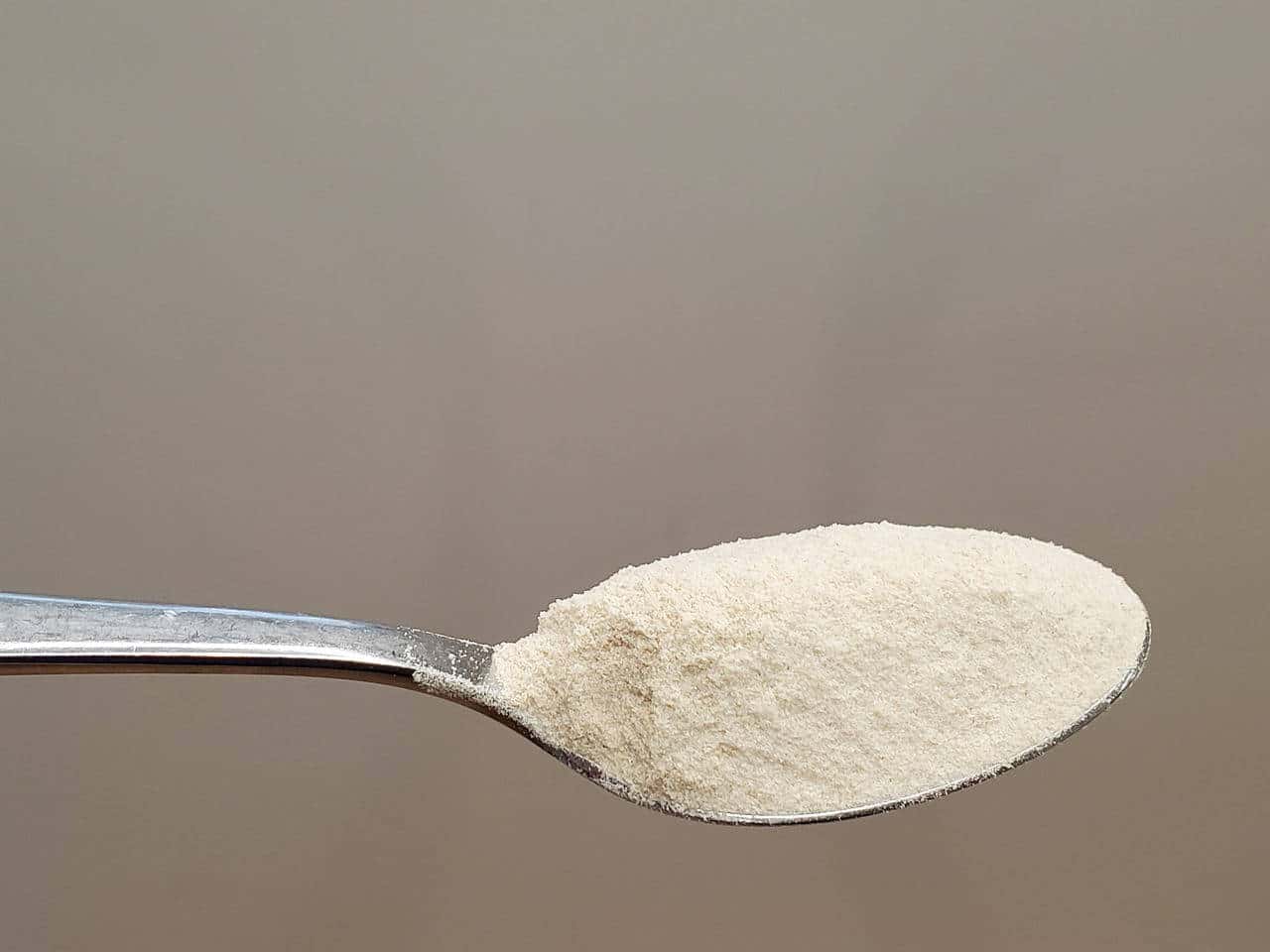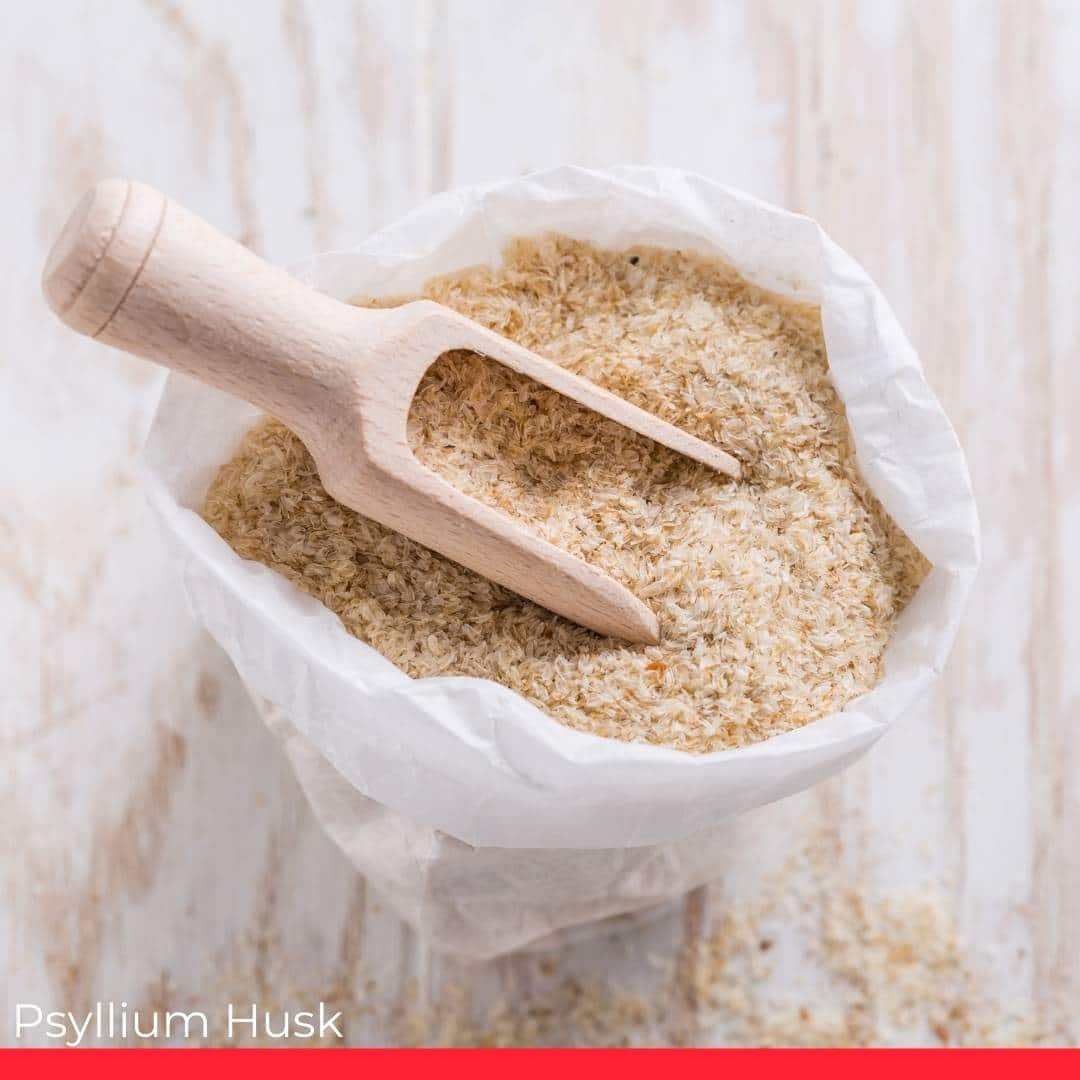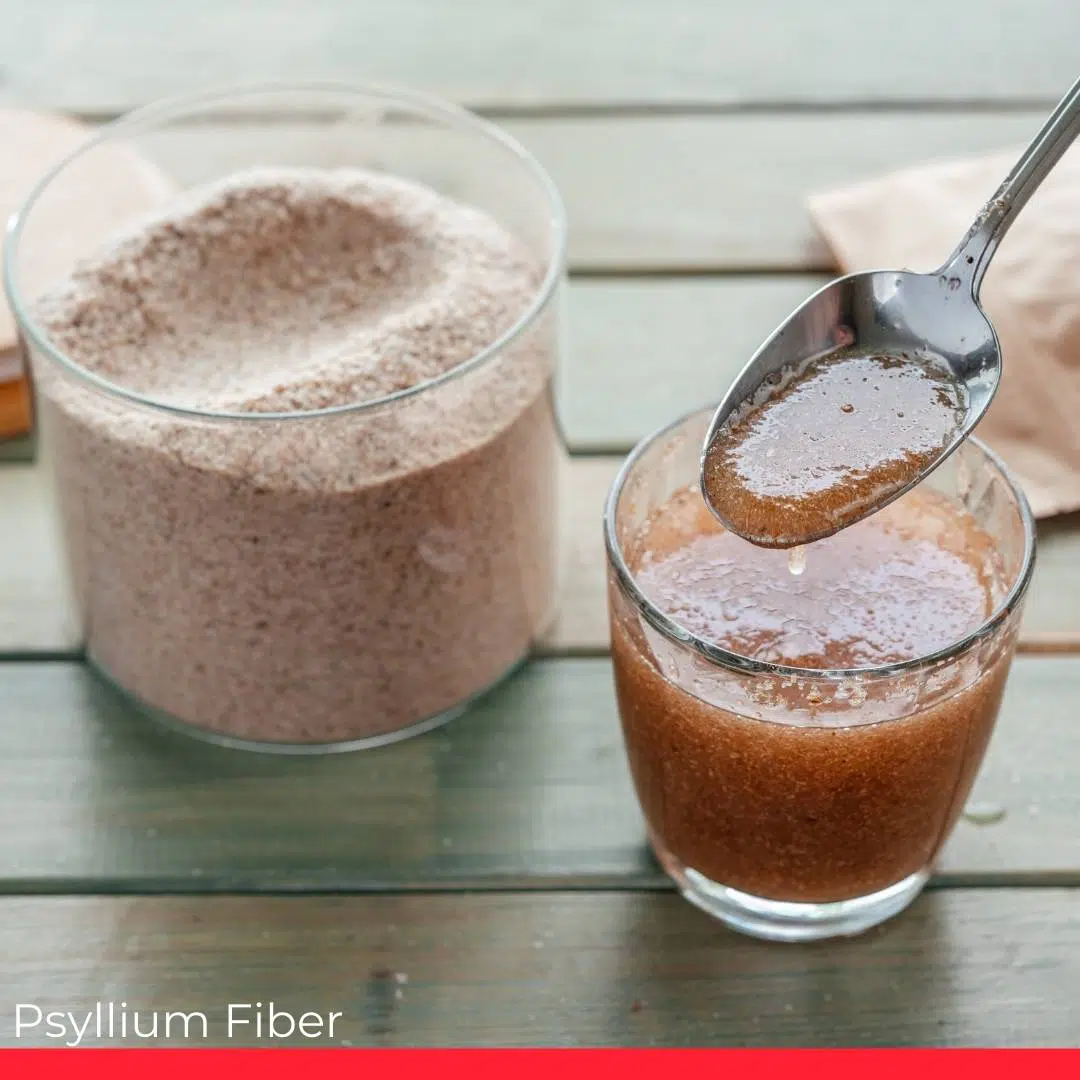What You Need to Know About Psyllium and Psyllium Husk

Over the past few years, the increasing desire to eat a healthier diet have led to research and studies that have led to the discovery of superfoods. One of these is psyllium.
We’re happy to see more and more people pursuing a healthier lifestyle, whether that comes from wanting to eat healthier foods, living in a more environmentally conscious way, or simply wanting to help protect the planet, its creatures, and ourselves. Humanity is taking baby steps towards a better future, and we’re proud to partake.
Let’s talk about one of the ingredients that is getting more popularity due to its proven benefits for the digestive system, among many other traits. Psyllium, or ispaghula (isabgol), is a soluble fiber derived from the seeds of Plantago ovata, a herb grown mainly in India but found all over the world.
Disclaimer: Before you read any further, please note that this article is written for informative purposes only. It is based on scientific information from various trustworthy sources (links to these sources are provided below).
However, it is not meant to replace professional medical advice and we strongly advise that you seek professional opinion before introducing psyllium into your diet. This is particularly important if you are prone to any of the health issues mentioned below.
What is psyllium husk?

As you may well know already, psyllium is a soluble fiber that supports the digestive system. Similar in taste to cereals like oats, in husk form it’s quite easy to integrate into your daily diet by mixing it with granola, muesli, corn flakes or a fruit, cereal, and yogurt bowl. It can be found in the form of capsules, granules or powder, as well as in an ingredient in ready-mixed cereals.
Fiber is an essential part of any diet for stimulating proper digestion. The average adult should consider around 30 g of fiber a day, but most of us only eat half that. It isn’t only important for healthy bowel movements. It also helps our digestive system, it can lower the risk of certain related diseases, reduce cholesterol, and even help with weight loss. And, needless to say, psyllium reduces constipation.
What is more, it’s the active ingredient in certain medications and supplements, such as the world-famous Metamucil. Find more information here.
Properties of Psyllium Husk
Excellent solubility

Fiber and water make a good mix. Where psyllium is concerned, it can absorb water, changing its texture to a thick, viscous paste that resists digestion in the small intestine.
Its resistance to digestion allows it to help regulate high cholesterol, triglycerides, and blood sugar levels, which makes psyllium great for preventing certain heart conditions. It can also aid weight management and relieve mild diarrhea as well as constipation.
More information about fiber supplements and clinically meaningful health benefits found here.
Further medical studies have looked at the relationship between certain types of fiber and Type 2 Diabetes. Find that here.
Reliable laxative
Similar to other soluble fibers, psyllium passes through the small intestine without being completely broken down or absorbed. Creating a gel-like texture when mixed with water, it softens stools and relieves constipation.
● Step 1
It binds to partially digested food passing through the stomach into the small intestine.
● Step 2
It absorbs water, which increases moisture and size of stool, lubricating it and making it easier to pass.
Studies have found that psyllium and other soluble fibers have better effects than insoluble fibers, increasing the moisture, weight, and texture of stools and thereby fighting constipation. More on the study at this link.
Moreover, a study has confirmed that an intake of only 5.1 grams twice a day over two weeks can significantly modify the content of stools and bowel movements, with improvements for the 170 subjects suffering from chronic constipation. Read the complete study here.
Relieves diarrhea
According to other studies, psyllium’s ability to absorb water provides even more benefits for our body. By increasing stool thickness, it slows down its passage through the colon and therefore helps fight diarrhea. Here are two studies where you can learn more: Fiber supplements and clinically proven health benefits: How to recognize and recommend an effective fiber therapy and Psyllium (Plantago ovata) Husk: A Wonder Food for Good Health.
How does it work?
- by improving the consistency of loose stools with high water content
- by slowing down the colonic transit
- by reducing the gravity and urgency of going to the bathroom
- by lowering the frequency of bowel movement
May boost satiety and help weight loss

How, you may be wondering? Well, fiber has great benefits for the overall digestion process as it is known to reduce appetite. It’s the property of forming a viscous compound that slows down the emptying of the stomach, increasing the time in which you feel sated. It goes without saying that a reduced need and desire to eat go hand in hand with weight loss.
One study has proven that taking up to 10.2 grams of psyllium before the first two meals of the day significantly reduces hunger and the desire to eat, making subjects feel full for a longer period of time. The control group that was given a placebo reported different effects.
Another study conducted in 2011 showed that psyllium on its own or as part of a fiber-rich diet resulted in a significant reduction of weight loss, body mass, and body fat. But in order to be entirely sure, more studies need to be conducted; psyllium is a somewhat recent discovery and needs further research. Some studies have come up with contradictory conclusions. For example, a review of 22 trials in 2020 reported that psyllium had no effect on body weight, body mass index, and waist circumference.
In conclusion, understanding the way psyllium is absorbed into our body helps understand the stimulation of digestion, weight loss, and other healthy effects on the digestive tract. Thus, it may boost satiety and help you lose weight, but more clinical research is needed to be sure.
Psyllium and blood sugar
In addition to all this, this superfood does more wonders to our health and body. It’s said to help lower blood sugar levels by controlling our body’s glycemic response to feeding, reducing insulin and blood sugar levels.
Insulin is the hormone that allows glucose to enter our blood cells, providing them with the necessary energy to function. Think of patients with diabetes; the lack of insulin blocks this natural process, but, apparently, psyllium can aid the absorption of glucose. Psyllium should therefore be ingested with food rather than on its own.
If you are suffering from diabetes or would like to know more about this topic, read about the improvement of diabetic metabolism with psyllium and fiber here and the intake of dietary fiber in relationship with Type 2 diabetes.
May help lower cholesterol levels

There are two kinds of cholesterol: “good” cholesterol, also known as HDL, and “bad” cholesterol, called LDL. It would seem that psyllium increases HDL and lowers LDL. Subjects of a study had a decrease in LDL levels after a 6-week trial of 6 grams of psyllium per day.
The next step would be to show that the reductions of LDL cholesterol are dose-dependent. Further studies are taking place and the results are expected to show that the more psyllium you ingest (whether you increase quantity or dosage), the more balance in LDL levels. This was proven in an interesting study that shows that 20.4 grams a day do a lot more than 3 grams a day. Read more here.
How so? The explanation of how this happens lies in the binding of psyllium to fat and bile acids, helping our body excrete them. When the body tries to replace the lost bile acids, the liver uses cholesterol to produce more. As a result, blood cholesterol levels decrease.
Lowering cholesterol levels not only benefit the liver and support good digestion. This also has an effect on the heart, as it improves blood pressure, especially for those with hypertension. As the American Heart Association say, dietary fiber can improve and balance cholesterol, therefore lower the risk of heart disease, stroke, type 2 diabetes, and obesity.
In 2010, a group of obese people were given 12 grams of psyllium supplements three times a day. This led to significantly lower levels of cholesterol and LDL (low-density lipoprotein) over a period of 6 to 12 weeks. In patients with really high blood pressure, the results were even more impressive.
Add this to a healthy diet and it seems you’ll be on your way to a miraculous change in your overall habits, health, and lifestyle.
Psyllium husk and IBS
Irritable Bowel Syndrome is a pretty common disease, which affects people differently. Although it’s caused by how we react to stress, anxiety, and other disorders linked mostly to mental health, IBS is “that feeling in the gut” which causes constipation or diarrhea or both, with no other external or pathological explanation.
People experiencing IBS can feel abdominal pain, bloating and swelling, gas or sensations similar to cramps. The cause is the consumption of fibers that do not stimulate this process because they are metabolized differently by gut bacteria. Of these dietary fibers, the most common is inulin and some of the FODMAPs, certain sugars that may cause intestinal distress.
Psyllium causes gut bacteria to produce less gas, as it requires a minimal process of fermentation, making it ideal for patients with irritable bowel syndrome. This study shows that psyllium husk is without doubt very effective for IBS symptoms. Find it here.
It appears that psyllium is the superfood of the century. The conclusions of the medical studies presented here are all the proof you need if you’re considering fortifying your cereal bowl with a teaspoon of psyllium. It can be found in supermarkets, in the organic section, or online. You can also find psyllium capsules, granules or powder in pharmacies.
And now, let’s get to the fun and creative part.
How to use psyllium husk

As well as pills and capsules, you can also use the seeds. With these, there are all sorts of ways you can get creative: sprinkle them over your granola bowl, mix them with other cereals, add them to dough when baking breads, or use them in desserts, smoothies, and even water.
Keep in mind that water does absorb a lot, so make sure to drink plenty of water or double the quantity of water you usually drink.
In conclusion…
There is no doubt that psyllium does a great service to your overall health. Let’s take another look at all the benefits. It’s probably the best-known fact about psyllium is that it is a great laxative, which is why it has become so popular over the last few years. It relieves diarrhea, boosts satiety, and has a role that is yet to be properly understood in the weight loss process. But progress is being made as more studies are conducted and more data is analyzed.
Psyllium husk relieves symptoms associated with irritable bowel syndrome and seems to balance cholesterol and lower blood sugars. Healthy for the digestive tract, liver, and all the other organs, it may also benefit the heart. Without hesitation, it’s safe to say it’s a godsend, an ingredient that can improve the lives of people struggling with digestive disorders – which isn’t as rare as you may think.
Let’s end by restating how this amazing product has an effect on medical issues and has serious health benefits. However, we strongly advise that you seek advice from a medical professional before making any significant changes to your diet. This is especially important if have any serious symptoms other than occasional bloating or diarrhea. Read all about it, talk to your doctor, and only then make a decision. Thanks for reading.

